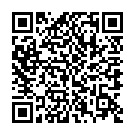|
|
|
| Module code: MST2.ELT |
|
|
3V+1P (4 hours per week) |
|
5 |
| Semester: 2 |
| Mandatory course: yes |
Language of instruction:
German |
Assessment:
Written exam 120 min.
[updated 05.10.2020]
|
MST2.ELT (P231-0039) Mechatronics and Sensor Technology, Bachelor, ASPO 01.10.2019
, semester 2, mandatory course
MST2.ELT (P231-0039) Mechatronics and Sensor Technology, Bachelor, ASPO 01.10.2020
, semester 2, mandatory course
|
60 class hours (= 45 clock hours) over a 15-week period.
The total student study time is 150 hours (equivalent to 5 ECTS credits).
There are therefore 105 hours available for class preparation and follow-up work and exam preparation.
|
Recommended prerequisites (modules):
None.
|
Recommended as prerequisite for:
MST2.AKT
MST2.ELE Electronics
MST2.PSYS Lab Course: Systems Theory and Control Engineering
[updated 13.09.2024]
|
Module coordinator:
Prof. Dr. Kai Haake |
Lecturer: Prof. Dr. Kai Haake
[updated 01.10.2020]
|
Learning outcomes:
After successfully completing this module, students will have mastered the basic theories and methods of calculating and analyzing electrical circuits and networks and will be able to develop and evaluate solutions for simple electrical engineering tasks.
[updated 05.10.2020]
|
Module content:
- Introduction to electrical engineering (static electric field, moving charges in the electric field, two-poles)
- Simple electrical circuits,
- Basics of network calculation, network theorems,
- Power balance of electrical components,
- Alternating current circuits, complex alternating current calculation,
- Introduction to signal theory, introduction to four-pole theory,
- Magnetostatics, magnetic circuits, electromagnet, law of induction, transformer,
- Examples of components in electrical engineering.
[updated 05.10.2020]
|
Teaching methods/Media:
Lecture, projector, exercises
[updated 05.10.2020]
|
Recommended or required reading:
Siegfried Altmann / Detlef Schlayer: Elektrotechnik, Leipzig, Fachbuchverlag Leipzig
Heinz-Josef Bauckholt: Grundlagen und Bauelemente der Elektrotechnik, Hauser Verlag München 2019
Weißgerber, Wilfried: Elektrotechnik für Ingenieure 1,Springer Vieweg, [2018]
Weißgerber, Wilfried: Elektrotechnik für Ingenieure 2, Springer Vieweg, [2018]
[updated 05.10.2020]
|


